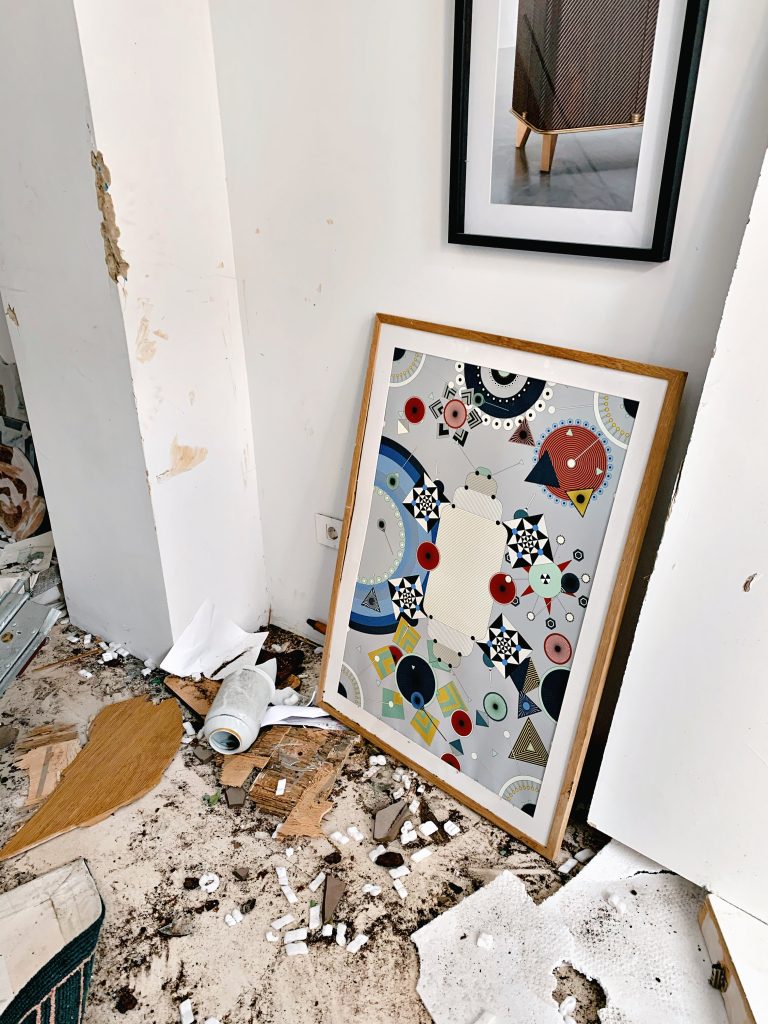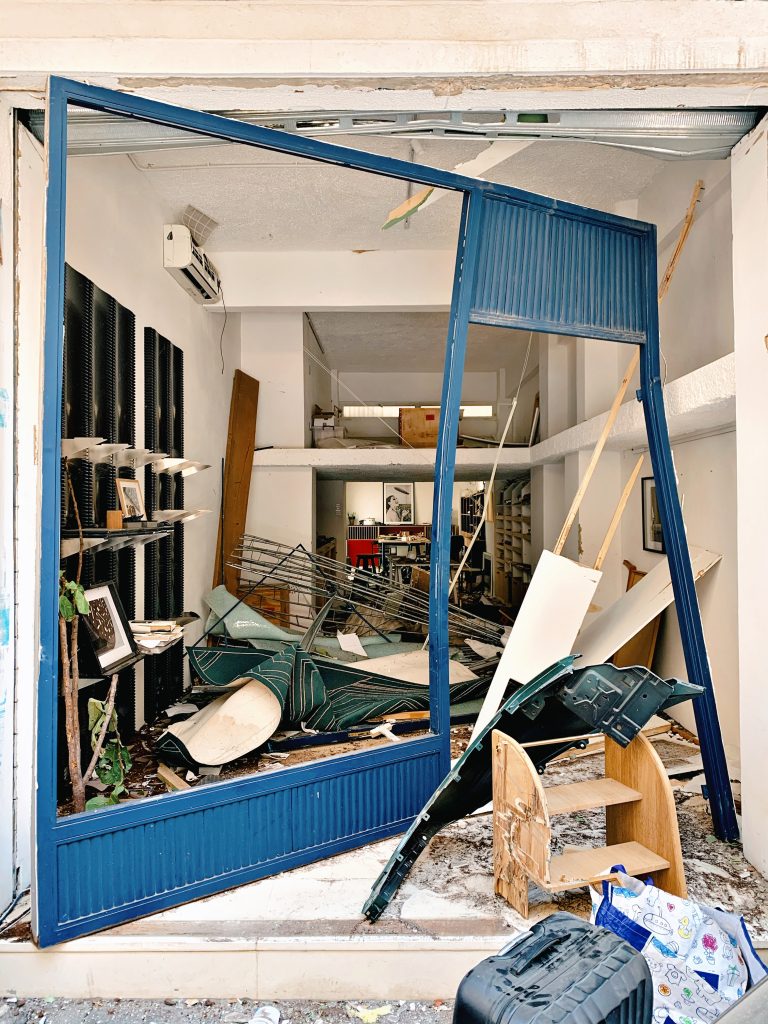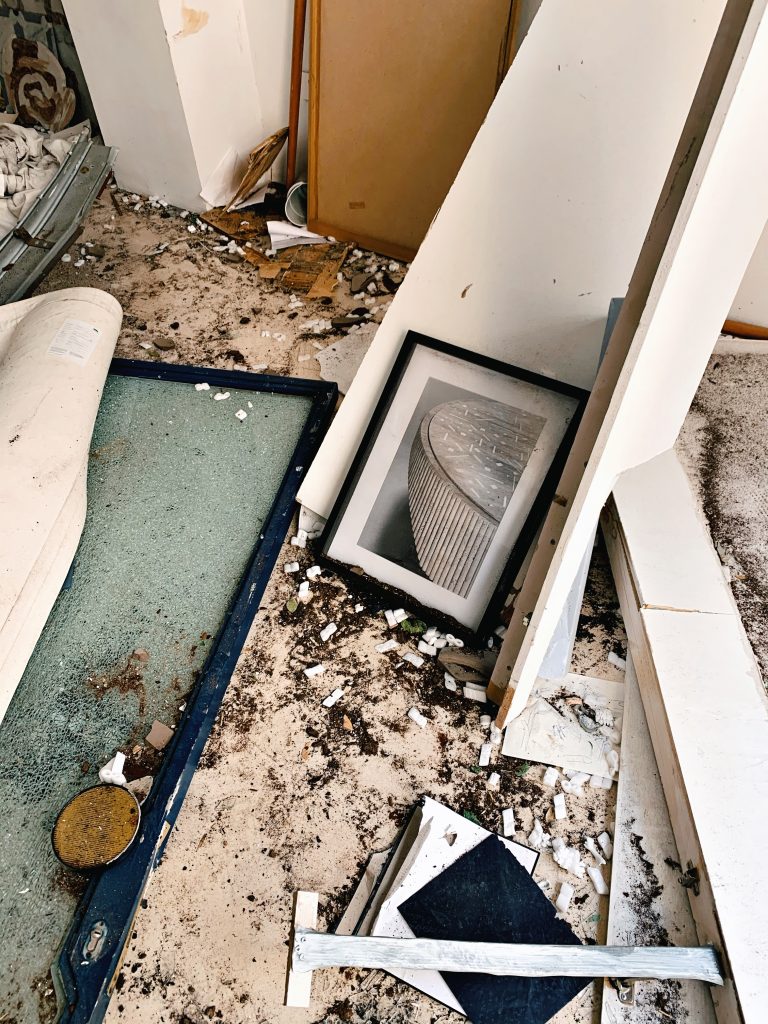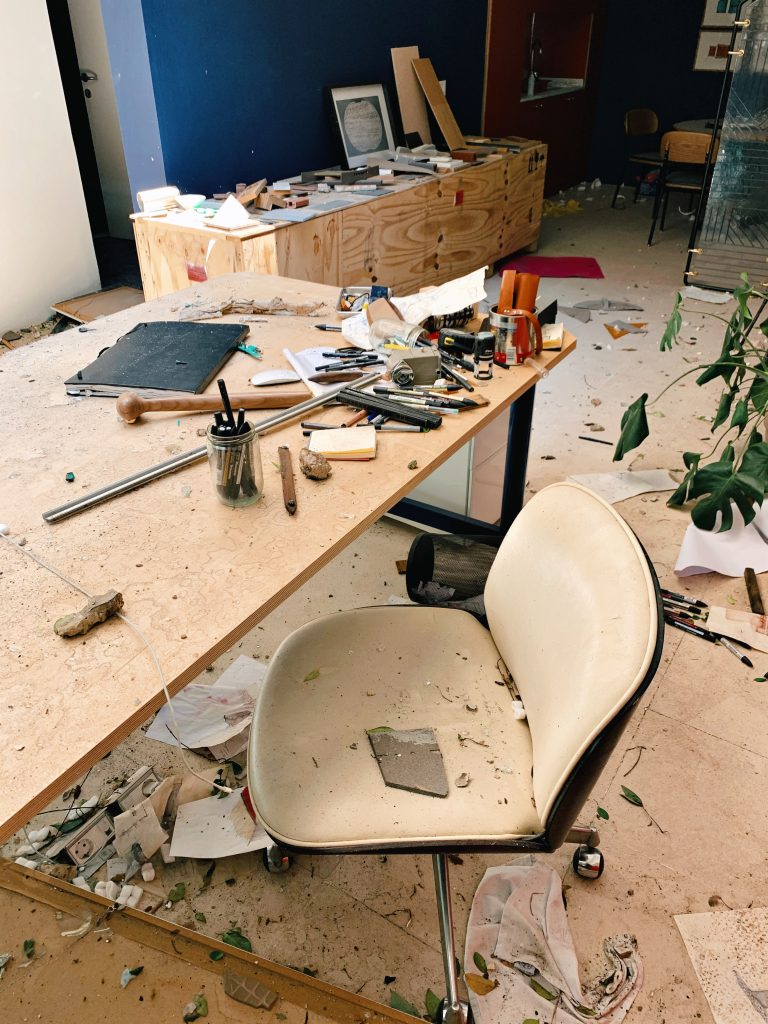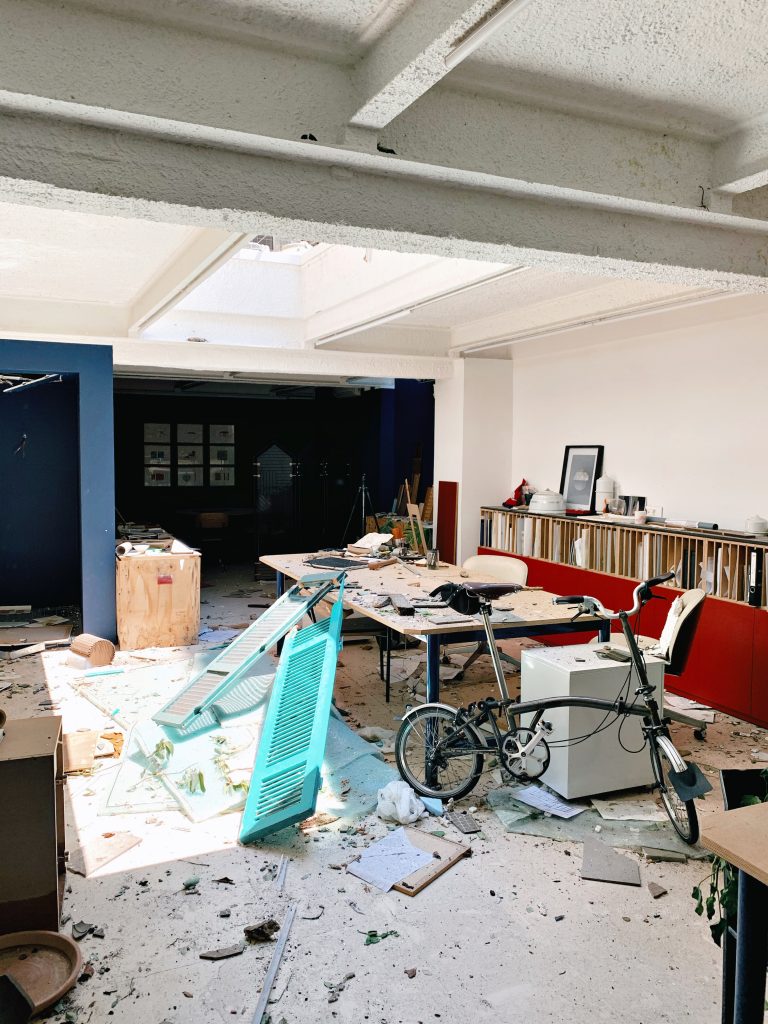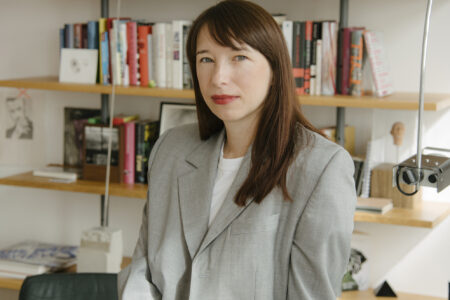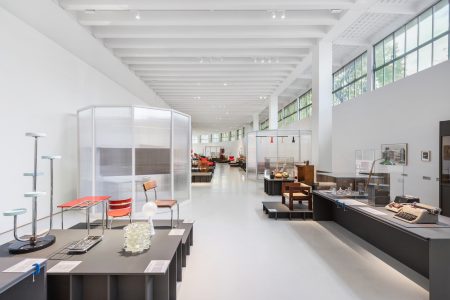Losing a City
What happens when the land that is most precious to you is rocked and your creative sanctuary is shattered? Four Beirut-based designers share their hopes and losses after the devastating explosion that destroyed much of their city.
On 4 August 2020, the day of Beirut’s port blast caused by an explosion of a large amount of ammonium nitrate, furniture designer Karen Chekerdjian and her team should have been at work in their studio in the Lebanese capital. However, a malfunctioning electricity generator had them all clock off before the incident occurred, killing more than 200 people, causing over 6,500 injuries and leaving 300,000 people homeless.
“We all could have been dead in the office,” says Chekerdjian, describing how her showroom’s 25-metre façade collapsed. “Aluminium went into the walls like daggers, into the meeting room where we were supposed to be.” Confronting the destruction a few days later, she came face to face with something resembling a warzone. “It was an open space – like a terrace with a view – both scary and beautiful.” With the help of volunteers, the rubble was cleared to make way for new office furniture, alongside bird and wasp nests that appeared within six weeks of the building standing without walls.
“I’m not sad about the things,” Chekerdjian says, referencing sentimental paintings and prototypes that were ruined. “Material things, I can fix. It’s more about the feeling in us – like hope went away. It blew our daily life; our habits, friends, neighbourhoods. How do you get your city back?”
“We lost our sense of everyday livelihood,” agrees designer Nada Debs, whose luxury boutique and studio/workspace stands in a now-mostly-ruined 1930s building in Gemmayzeh, an area devastated by the blast. “The people who live here are all gone. What’s left are broken buildings, broken windows…” Debs has spent the bulk of her career promoting Lebanese craft and culture by working with local artisans to create modern pieces. Many of her clients have been returning damaged furniture and homeware items to be repaired after the explosion. “It makes my heart sink because of the effort of the craftsmen and artisans. You can never really repeat artisanal work – it’s all about the energy.”
While Chekerdjian is finding it hard to access her creativity two months after the blast, with her mind on survival and rebuilding, Debs is experiencing a renewed energy. “This period of time has brought full creativity out of me. I have so many ideas. My sense of responsibility as a designer has become much stronger, to find solutions in preserving our culture, craft and heritage, and to bring an awareness of all these people still working on craft. I feel I need to come up with even more techniques and ways of using their work in a positive, contemporary way that’s relevant to the new generation.”
David Raffoul and Nicolas Moussallem, the duo behind david/nicolas, will only be able to return to their devastated studio in Beirut’s popular Mar Mikhael area in February or March 2021.
Since launching their studio eight years ago, the two designers have dedicated much time to researching identity in the Middle East, but it was due to the blast that they noticed their voluminous, almost Brutalist furniture as being the direct result of their larger-than-life everyday surroundings. “When it all disappeared, I realised that everything here is out of proportion – even the explosion and damage were out of proportion. This ‘out of proportion’ is also affecting our minds,” says Moussallem, pointing to how david/nicolas’s 2018/19 solo show with Carpenters Workshop Gallery, Supervona, was based on Beirut having been destroyed seven times. “Now it’s eight times,” he says.
“But we’re not going to stay the generation talking about war,” says Raffoul, alluding to Lebanon’s tumultuous history. “We’re inspired by the beauty and people and energy of Lebanon.”
“The most important thing we have to try and keep – what’s precious to us – is our identity and culture,” says Moussallem. “So we are choosing to focus on the beautiful things that make our country what it is, and see how we can express this in installations, furniture and interiors.”
While Raffoul and Moussallem work from a temporary space in Lebanon’s mountainside, Debs is back in her Beirut office, developing a collection of pieces from old windows and doors that could not be fixed. “It’s a little bit of a memorial,” she says of her former boutique that will now house such installations instead. “We’re showing how we can mend broken things and put them to new use.”
Chekerdjian, too, is rethinking her workspace. “My office is now my battlefield,” she says. She has swapped her elegant work-day attire for trainers and comfort wear. “We must be ready for anything, so I can’t have a nice, slick, beautiful showroom. It needs to be rougher, and more open for everyone to enter. The way of doing work has to change. Because I have changed. And because Lebanon has changed.”
